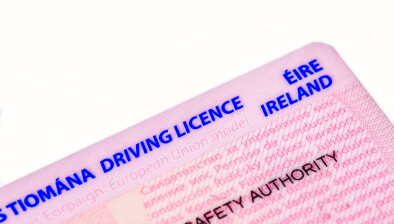High Court: No Garda power of detention whilst awaiting result of roadside saliva drug test

The High Court has confirmed that no power to detain a driver pending the result of a roadside saliva drug test can be implied into the Road Traffic Act 2010.

About this case:
- Citation:[2023] IEHC 625
- Judgment:
- Court:High Court
- Judge:Mr Justice Garrett Simons
Delivering judgment for the High Court, Mr Justice Garrett Simons found that “the fact that, within the very same Act, the Oireachtas has made express provision for a power to detain a person in place in a specific set of circumstances, subject to a one hour time-limit, militates against the implication of an additional, broader power to detain in other circumstances”.
Background
The defendant was stopped at a Garda checkpoint, and his saliva was tested for the presence of drugs. The defendant was told by a garda present that he was required to remain at the roadside for up to one hour. Under the s.10 of the Road Traffic Act 2010, it is a criminal offence to fail to comply with a requirement of a member of An Garda Síochána.
The sample was processed within 18 minutes and was positive for an intoxicant, leading the gardaí to form the opinion that the defendant had committed an offence of driving under the influence of drugs contrary to s.4(1A) of the 2010 Act. The defendant was arrested and conveyed to a Garda station to have a blood specimen taken.
In the course of the prosecution, the District Court referred a question by way of consultative case stated to the High Court as to whether the s.10(4) of the 2010 Act gives gardaí an implied statutory power to require a driver, having provided a saliva specimen, to remain at a roadside checkpoint until the specimen is analysed for the presence of drugs.
The High Court
Mr Justice Simons set out the provisions of s.10(4) of the 2010 Act, which gives gardaí the power to stop any vehicle at a checkpoint, to require the driver to provide a breath or saliva sample, and to require the driver to keep their vehicle in situ or in the vicinity of the checkpoint until such time as they have provided the sample requested.
The court noted s.10(5) as providing that gardaí may indicate the manner in which the driver must comply with their request, and s.10(7) which allows gardaí to arrest without a warrant a person who, in the member’s opinion, is committing or has committed an offence under s.10.
Beginning an analysis of the statutory scheme, Mr Justice Simons observed that the legislation does not envisage any lag between the “provision” of a saliva sample and the “indication” of whether drugs are present.
Secondly, the court found that the legislation does not stipulate what should happen in the event that the test is positive, with the only explicit reference to a positive result giving reasonable cause to arrest the driver being found in s.13B, which allows the taking of a blood sample from an arrested person where gardaí, having carried out a saliva test, are of the opinion that the person has committed an offence under s.4(1A).
The court further observed that no express power was conferred upon gardaí to detain a person, at the place where they were stopped, to await a result of a saliva test. Mr Justice Simons highlighted that the only contingency in which a person may be required to remain in situ is where gardaí do not have the saliva-testing apparatus to hand, with the period of detention limited to one hour as per s.9(2A)(c) of the 2010 Act.
Noting that the statutory power to require a saliva sample is not subject to any qualifying threshold, the court stated that this requirement can be imposed in the absence of reasonable suspicion that the person may have been driving under the influence of drugs.
The court concluded its analysis of the legislation by confirming that no offence is committed where a person holds a ‘medical exemption certificate’ as defined under the 2010 Act, and rejected the submission that an inquiry into whether the driver holds such a certificate is dependent on whether a saliva test has been performed and has yielded a positive result.
Turning to the principles of statutory interpretation, the court emphasised that notwithstanding that s.10 is a penal provision, the process of interpretation “must commence with a consideration of the ordinary and natural meaning of the statutory language” in line with authorities such as Bookfinders Ltd v. Revenue Commissioners [2020] IESC 60 and Director of Public Prosecutions v. T.N. [2020] IESC 26.
The court relied upon paragraphs 75 and 76 of Habte v. Minister for Justice and Equality [2020] IECA 22 as summarising the test for the implication of statutory powers — that the court should “determine whether it can be said that the Oireachtas so clearly intended the statutory body to enjoy the power that it was reasonable to conclude it did not feel it necessary to express it”.
Finding that the threshold for implying a power had not been met, the court first considered that the DPP was contending for an “implication upon an implication” to the effect that the court “should imply that the purpose of the taking of the specimen of oral fluid is to assist in the formation of the requisite opinion for an arrest, and then imply a power to detain a driver at the roadside so as not to undermine the first implication”.
Mr Justice Simons determined that this would go “beyond permissible statutory interpretation and would involve the court legislating”.
The court further observed that there was nothing in the 2010 Act to suggest that the legislature intended that there would be any time lag between the provision of a sample and the test result, and highlighted that as the 2010 Act makes express provision for arrest and detention “at various points” throughout its structure, the Oireachtas ordinarily would have stipulated for a power in the statutory language if it were to apply in the context before the court.
The court declined the prosecution’s request for it to consider the validity of events subsequent to the roadside detention of the defendant, stating that same would go beyond the scope of the case stated, and further noting that the District Court did not seek guidance on same and that it would be “presumptuous of the High Court to address these issues in circumstances where the District Court has not yet had an opportunity to do so”.
Conclusion
The court concluded having regard to the statutory language, the 2010 Act is open to the interpretation that the only purpose of the saliva sample is that expressly identified under s.13B.
As such, Mr Justice Simons stated that the answer to the District Court’s question was “no”, as there is no express power of roadside detention in s.10(4) and it is not necessary to imply such a power in order to avoid an “absurd” interpretation of the 2010 Act. The court warned that the judgment only applied to saliva samples, and did not address breath samples.
Director of Public Prosecutions v O’Flaherty [2023] IEHC 625










